#pregnancyandsleep
Text
14 myths about pregnancy
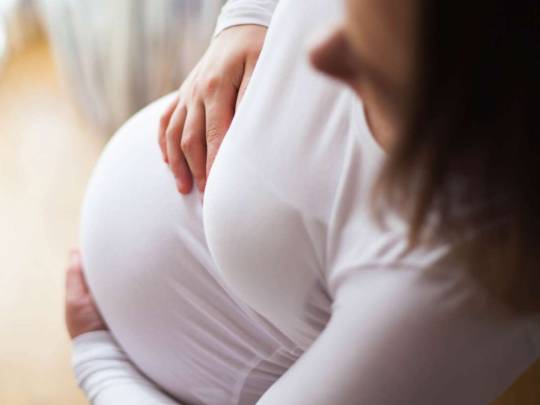
14 myths about pregnancy
Most people have heard pregnancy-related advice or information, which often focuses on what different symptoms mean, how to tell the sex of the baby, and what a woman can and cannot do during pregnancy.
Although some pieces of information, particularly those from healthcare professionals, can be accurate and helpful, lots of myths circulate pregnancy.
Here, we look at some popular myths and explain the truth behind them.
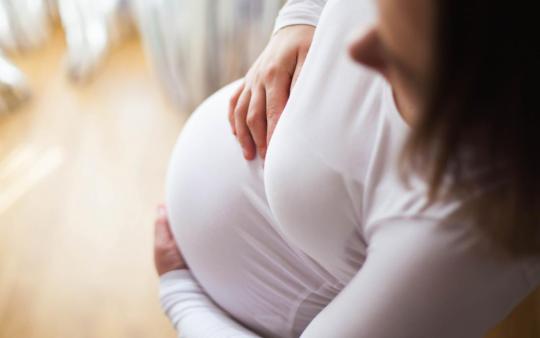
Share on PinterestA person can speak to a healthcare professional about what to expect during pregnancy.
In reality, the rate of teen pregnancies in the United States is slowly decreasing.
Research suggests that this decline is primarily due to the increased use of contraceptives.
According to the Centers for Disease Control and Prevention (CDC), in 2017, the number of recorded pregnancies for teenagers between 15 and 19 years of age was 194,377. This total is down 7% from 2016.
Twin pregnancies are more common than people might think.
According to the CDC, approximately 128,310 twin babies were born in 2017. Twins account for roughly 33 out of 1,000 births in the U.S.
There is limited evidence to confirm whether this is true.
A small study from 2006 found that 23 of the 28 participants who reported experiencing moderate-to-severe heartburn had babies with an average or above average amount of hair.
The researchers suggested that this may be due to pregnancy hormones that affect both hair growth and the relaxing of the muscles that separate the esophagus, or food pipe, from the stomach.
People propose many different techniques for predicting the sex of the baby. These range from using the shape of the pregnant woman's face or belly to guess the sex to seeing how a wedding ring rotates when the woman suspends it from a string and holds it over the belly.
None of these methods are accurate indicators of a baby's sex.
While it is true that women may need to increase their caloric intake slightly when pregnant, they should avoid overeating.
Overeating can be harmful to both the woman and the fetus, especially if the diet contains a lot of empty calories.
Women should aim for a gradual increase in calories throughout the pregnancy:
First trimester: No extra calories are necessary.
Second trimester: Experts recommend an additional 340 calories per day.
Third trimester: An additional 450 calories per day is the recommendation.
Women should generally focus on continuing with their regular diet, but they should ensure that they are eating nutrient-rich foods.
Most women should engage in light-to-moderate exercise during pregnancy.
A woman who did not exercise regularly before becoming pregnant should talk to a healthcare professional before starting a new routine.
According to one survey of obstetricians, or doctors specializing in childbirth, more than half of the respondents said that they do not usually recommend that women start a new routine if they were sedentary before becoming pregnant.
However, 97% of the respondents reported recommending light-to-moderate aerobic exercise 2–5 days a week for women in the first trimester.
Despite its name, morning sickness can affect pregnant women throughout the day. Less than 2% of pregnant women experience morning sickness only in the morning.
Morning sickness typically starts by the fourth week and ends by the 16th week.
Pregnant women can eat foods that people often associate with allergies, such as nuts and milk, as long as they are not allergic to them. The baby will not develop an allergy to these foods.
However, a woman should avoid some foods, such as raw meat, seafood, and certain soft cheeses, for other health reasons.
A healthcare professional can provide more information on which foods to avoid.
Learn about nine foods to avoid during pregnancy here.
Sex has no effect on an otherwise healthy pregnancy.
The authors of a review of existing research concluded that sex during pregnancy did not increase the risk of preterm labor in low risk pregnancies. They also noted that other potential complications remain unproven.
In rare cases, a doctor will recommend abstaining from having sex during pregnancy. For instance, if heavy bleeding has occurred during the pregnancy or the water has broken, a woman should avoid having sex.
Women who are experiencing placental problems, cervical insufficiency, or any other factors that increase the chance of preterm labor should check with a doctor before having sex.
Learn more about how pregnancy can affect a woman's sex drive.
Many women try to avoid coming into contact with cats during pregnancy because they have heard that cats can cause an infection.
Cat feces can carry protoplasmic, a potentially harmful disease. As a precaution, therefore, a pregnant woman should either wear gloves to change the litter or have someone else do it.
Women do not need to avoid cats during pregnancy as long as they follow this precaution.
Pregnancy can be difficult for many women. Hormones, body changes, and tiredness can take their toll on both physical and mental health, as well as affecting a woman's mood.
It is normal for people not to feel happy all of the time, and pregnant women are no different.
In reality, a woman may be able to have a vaginal birth following a previous cesarean delivery.
The decision to give birth via a cesarean or vaginal delivery depends on how the current pregnancy is progressing, the woman's labor, and the risk of any potential complications.
Most of the natural and alternative medicines that people recommend to induce labor have no basis in scientific knowledge.
A 2018 study found that some herbal medicines may be effective.
However, the popular natural methods that people use to try to induce labor vary in terms of safety:
Blue and black coho sh: There is evidence to suggest that these roots may cause fetal heart failure and stroke, as well as maternal complications during labor.
Pineapple: There is no harm in eating pineapple, but it may cause heartburn.
Castor oil: This oil may cause uterine irritation and contractions, but they are often a result of diarrhea rather than labor.
Spicy foods: There is no proof that eating spicy foods will induce labor. They can cause gastrointestinal upset and heartburn, however.
The Food and Drug Administration (FDA) do not regulate herbal medicines in the same way that they assess standard medicines. As a result, people should discuss their use with a healthcare professional.
Many myths surround pregnancy, some of which involve incorrect information or advice that may be harmful.
A woman should talk to a doctor before making any significant dietary, healthcare, or lifestyle changes during pregnancy.
14 myths about pregnancy
Read the full article
#pregnancy#pregnancyanddiabetispregnancyandlactation#pregnancyandsleep#pregnancyathome#pregnancybelt#pregnancybloodtest#pregnancycalculter#pregnancychances#pregnancychart#pregnancycheck#pregnancycheckathome#pregnancyfeeling#pregnancyfrocks#pregnancyhacks#pregnancyharmones#pregnancyheadache#pregnancyinformation#pregnancykidua#pregnancykit#pregnancyleave#pregnancylegpain#pregnancyline#pregnancypillow#pregnancyquiz#pregnancysigns#pregnancystages#pregnancystick#pregnancystrips#pregnancysymptoms#pregnancytest
0 notes
Text
Depression during pregnancy: Symptoms, treatment, and more
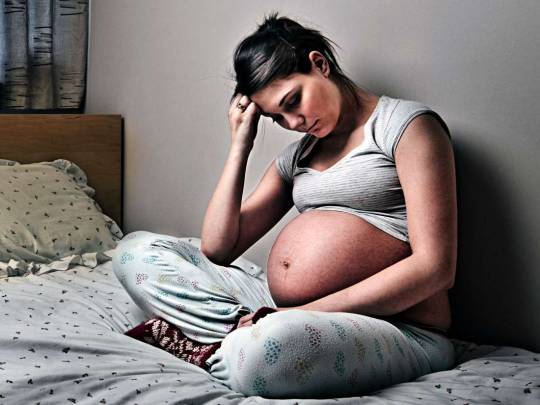
Depression during pregnancy: Symptoms, treatment, and more
Depression during pregnancy:Depression is a widespread mental health condition. Pregnant women have a higher risk of depression due to increased stress, physical health changes, chemical changes in the body, and other factors.
While estimates vary, a 2016 analysis suggests that between 7% and upwards of 20% of pregnant women around the world have depression. The actual rate could be higher, since some women may be reluctant to seek help.
Depression during pregnancy can have emotional, health, relationship, and financial effects. Some people know this condition as prenatal depression. However, the American Psychiatric Association no longer use this term. Instead, they use the term major depressive disorder with peripartum onset.
Depression during pregnancy is treatable.
In this article, learn more about the symptoms of depression during pregnancy, as well as the treatment options and when to see a doctor.

Share on PinterestA person with depression may have feelings of isolation and low self-esteem.
It is normal to feel a mix of emotions during pregnancy and about being pregnant.
While a person with depression may feel sad, sadness is just one of many depression symptoms.
Some other signs include:
new or worsening feelings of worthlessness or hopelessness
not enjoying activities that were once fun or meaningful
withdrawing from friends, family, school, work, or hobbies
new physical health symptoms, such as headaches or stomach aches
trouble feeling excited about the pregnancy or bonding with the baby after childbirth
feelings of isolation and low self-esteem
trouble sleeping
sleeping too much
changes in eating habits, such as eating more or less than usual
thoughts of death or suicide
frequent crying
unexplained anger
relationship stress
difficulty following prenatal health recommendations because of feelings of helplessness or hopelessness
Suicide prevention
If you know someone at immediate risk of self-harm, suicide, or hurting another person:
Call 911 or the local emergency number.
Stay with the person until professional help arrives.
Remove any weapons, medications, or other potentially harmful objects.
Listen to the person without judgment.
If you or someone you know is having thoughts of suicide, a prevention hotline can help. The National Suicide Prevention Lifeline is available 24 hours a day at 1-800-273-8255.
Anyone can become depressed during pregnancy, though some people are more vulnerable.
The authors of a 2017 analysis reviewed 5 years of previous studies on the topic and identified the following risk factors:
previous history of depression
little or no exercise
not having a partner
a history of abuse or trauma
abuse by a partner
feeling out of control
smoking
using certain drugs, such as opioids
sleep problems
immune system problems
having an unintended pregnancy
not having a job
Many women who experience depression during pregnancy have healthy pregnancies. Depression does not mean the baby will be unhealthy or make any particular pregnancy outcome inevitable.
However, research suggests that depression during pregnancy may raise the risk of:
postpartum depression
depression in the baby's father
premature birth
low birth weight
behavior problems or a difficult temperament in the baby
changes in the baby's brain development
A 2011 study emphasizes that untreated depression increases the risk of adverse pregnancy outcomes. Prompt treatment can improve the outcomes for both the pregnant woman and the developing fetus.
Many people find that they must try several treatments or a combination of treatments to get relief from depression symptoms.
Some treatment options that may work include:
antidepressants to manage the chemical changes in the brain that depression causes
therapy to help the pregnant woman talk through emotions, identify coping skills, and getting support for the challenges of pregnancy
support from friends and family
family or relationship counseling to help expectant people talk about their emotions and manage the challenges of parenting
lifestyle changes, such as doing more exercise, as long as it is safe during pregnancy
support groups for expectant parents
treatment for any underlying medical conditions
A handful of studies link antidepressant use during pregnancy to an increased risk of congenital disabilities. Some studies have also found an increased risk of premature birth and low birth weight.
However, many studies fail to control for other factors that might explain these outcomes, such as worse health in women with depression or the effects of depression itself on the pregnancy. Additionally, some of the research is contradictory and inconclusive. The side effects are not consistent across studies.
The risks of untreated depression may outweigh any potential risks of antidepressants. Research has found that 60–70% of women who stop using antidepressants during pregnancy experience a return of depression symptoms.
The American College of Obstetricians and Gynecologists advise that the risk of side effects from antidepressants during pregnancy is low. The risk, they add, is highest in very early pregnancy—during the 3rd to 8th weeks.
Antidepressants are not the only treatment for depression during pregnancy, however. Therapy, lifestyle changes, support from friends and family, and sometimes family or couples counseling are also good options. Most people use a combination of treatments.
Some pregnant women prefer to try other treatments before choosing antidepressants. This strategy may work for some people, but not others.
Anyone who is pregnant and suspects they have depression should see their doctor as soon as possible. Most obstetricians and midwives have basic training in detecting depression in pregnant women.
They can also help a person decide on the right treatments and answer any questions they have about potential risks to the baby.
To get quality, comprehensive treatment, most people need additional support from a mental health professional.
A psychiatrist can help with deciding on the right medication, assessing the risk of side effects, and switching medications if necessary. A therapist, psychologist, or clinical social worker can also offer therapy and may recommend lifestyle or other changes to improve symptoms.
Depression during pregnancy can be an isolating experience. Friends and family may have unfair expectations that pregnant women always feel happy and fail to recognize the many challenges associated with pregnancy and parenthood.
Some women feel guilty or ashamed of their emotions or worry that depression means they are unfit for parenthood.
Depression is no one's fault. It is a treatable medical condition. The hopelessness that comes with depression may convince a person that treatment will not work, or that they will feel miserable forever. These feelings are symptoms of depression, not a reasonable assessment.
Prompt treatment is vital to relieve symptoms and to help a woman have a healthy and content pregnancy.
Read the full article
#pregnancy#pregnancyanddiabetispregnancyandlactation#pregnancyandsleep#pregnancyathome#pregnancybelt#pregnancybloodtest#pregnancycalculter#pregnancychances#pregnancychart#pregnancycheck#pregnancycheckathome#pregnancyfeeling#pregnancyfrocks#pregnancyhacks#pregnancyharmones#pregnancyheadache#pregnancyinformation#pregnancykidua#pregnancykit#pregnancyleave#pregnancylegpain#pregnancyline#pregnancypillow#pregnancyquiz#pregnancysigns#pregnancystages#pregnancystick#pregnancystrips#pregnancysymptoms#pregnancytest
0 notes
Text
Can Pregnancy Pillow Cause Birth Defects?

Can Pregnancy Pillow Cause Birth Defects?

Can Pregnancy Pillow Cause Birth Defects? If you are wondering whether you should go for pregnancy pillow or not, or whether using pregnancy can cause pregnancy defects, you need to go nowhere else as this article is a complete guide.
Hearing pregnancy news surely makes a wave of joy go through the body, but with it comes fears of miscarriage or birth defect.
What are Pregnancy Pillows
Technological advancement has made child delivery not only easy but also quite safe. Pregnancy pillow is one such advancement which is particularly made to be used during pregnancy. Swollen belly, leg craps and continuous need to go to toilet makes it difficult to sleep. Pregnancy pillows are particularly designed to solve this problem.
(adsbygoogle = window.adsbygoogle || ).push({});
Overall concept is similar to that of a normal pillow, with the difference in shape and purpose. These pillows are meant to wrap around belly and legs, providing soothing sleep experience by supporting belly and legs.
Are Pregnancy Pillows Necessary?
If you are using your normal pillows to support belly, and are having no noticeable problem, you may not use pregnancy pillows. These are simply an alternative to normal pillows when normal pillows are not serving the purpose of comfort.
Pregnancy Pillows and Birth Defects
Pregnancy pillows are meant to ensure pregnancy comfort and child protection through out the pregnancy period. It would be against its sole design purpose if it had any negative effects on the baby. You just need to buy them from an authentic medical store and get it checked by a doctor.
Types of Pregnancy Pillows
Generally, there are three types of pregnancy pillows in market. All three of them different in shape and size and you can select one best suitable for you.
Full Body Pillows - these pillows are particularly designed to wrap up your whole body. They are quite lengthy and curvy. You will get to know which pillow to place where when you unwrap them as they are designed for each body part.
C and J shaped - C shaped pillow is designed to support neck and J shaped wraps around bump and legs, providing comfortable sleep experience
Wedge Shaped – If you are on budget then this is best for you. It is a single piece designed to support only your bump. You can also buy wedge shaped pillow designed only to support your back. That is up to you.
Concludingly, you don’t need to worry about birth defects when using pregnancy pillows. They have no negative effect on child and are solely designed to ensure comfortable sleep experience and child protection. I would definitely recommend buying these if you are having sleep or comfort issues when you are in bed. Pregnancy pillows are easily available on medical stores and are quite reasonable in prices. For further satisfaction, before using pregnancy pillows, get them checked by your doctor and ask for further recommendations.
I hope this article was useful let me know about your feedback in comment section and if you have any question, feel free to ask.
Read more:
Top 7 Tips to Improve Parenting Skills
Things that Surprise you in Pregnancy
not getting pregnant after miscarriage
Is it safe to getting pregnant after miscarriage?
Subscribe our Free News letter and be the part of Baby Connecting Family
(adsbygoogle = window.adsbygoogle || ).push({});
Read the full article
#pregnancy#pregnancyanddiabetispregnancyandlactation#pregnancyandsleep#pregnancyathome#pregnancybelt#pregnancybloodtest#pregnancycalculter#pregnancychances#pregnancychart#pregnancycheck#pregnancycheckathome#pregnancyfeeling#pregnancyfrocks#pregnancyhacks#pregnancyharmones#pregnancyheadache#pregnancyinformation#pregnancykidua#pregnancykit#pregnancyleave#pregnancylegpain#pregnancyline#pregnancypillow#pregnancyquiz#pregnancysigns#pregnancystages#pregnancystick#pregnancystrips#pregnancysymptoms#pregnancytest
0 notes
Text
How To Avoid Ectopic Pregnancy
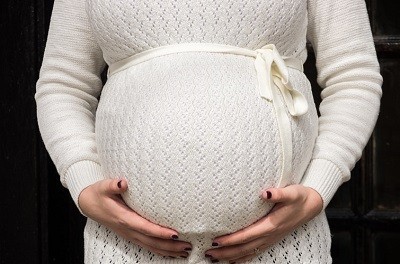
How To Avoid Ectopic Pregnancy
Read the full article
#pregnancy#pregnancyanddiabetispregnancyandlactation#pregnancyandsleep#pregnancyathome#pregnancybelt#pregnancybloodtest#pregnancycalculter#pregnancychances#pregnancychart#pregnancycheck#pregnancycheckathome#pregnancyfeeling#pregnancyfrocks#pregnancyhacks#pregnancyharmones#pregnancyheadache#pregnancyinformation#pregnancykidua#pregnancykit#pregnancyleave#pregnancylegpain#pregnancyline#pregnancypillow#pregnancyquiz#pregnancysigns#pregnancystages#pregnancystick#pregnancystrips#pregnancysymptoms#pregnancytest
0 notes
Text
Pregnancy A-Z

Pregnancy A-Z
Table of Content
How to get pregnant;
What is the best time to get pregnant?
How many sperm do you need to get pregnant?
Am I ovulating?
Pregnancy symptoms
How to check pregnancy?
Which pregnancy test is reliable?
How to use a pregnancy calculator?
1st trimester
Pregnancy week by week 1 to 12
2nd trimester
Pregnancy week by week 13 to24
3rd trimester
Pregnancy week by week 25 to 36+
Baby birth.
Pregnancy A-Z
Pregnancy a to z article provided by Baby Connecting Team. its all information about pregnancy
How to get pregnant;
Sperms of males will swim "up" completed with the uterus of the female, and it is of no importance what position your body is. If there is an egg standby, conception departs as quickly as three minutes after penetration. That's means; sperm can survive inside the female reproductive system for up to five days.
You're most fertility at the time of the expulsion of an ovum from the ovary, which usually occurs 12 to 14 days before your next period starts. That's the time of the month when you're nearly probable to get pregnant. It's implausible that you'll get pregnant just after your period, even though it can happen.
What is the best time to get pregnant?
If your menstrual cycle lasts 28 days and your period arrives like clockwork, you'll likely ovulate on day 14. That's halfway through your cycle. Your fertile window begins on day 10. You're more likely to get pregnant if you have sex at least every other day between days 10 and 14 of a 28-day cycle.
Read about Not Getting pregnant After Miscarriage
How many sperm do you need to get pregnant?
It takes just one sperm to fertilize a woman's egg. Keep in mind, though, for each sperm that reaches the egg, millions don't. On average, each time a man ejaculates, he releases nearly 100 million sperm.
(adsbygoogle = window.adsbygoogle || ).push({});
Am I ovulating?
when an egg is released from one of your ovaries is called Ovulation. ... your cervical mucus – you may notice wetter, more transparent, and more slippery phlegm around the time of Ovulation. Your body temperature – there's a small rise in body temperature after Ovulation takes place, which you may be able to detect with a thermometer.
Read about is it safe to get pregnant after Miscarriage
Pregnancy symptoms
Tender, swelling thorax. Your thorax may provide one of the first symptoms of pregnancy. ...
Tiredness. ...
Nausea with or without vomiting. ...
Headaches. ...
Slight bleeding or cramping. ...
Constipation. ...
Food aversions or cravings. ...
Mood swings.
The symptoms of pregnancy like breast tenderness, nausea, amenorrhoea, urinary frequency combined with a positive urinary or serum pregnancy tests are usually satisfactory confirmation of a pregnancy, and the internal examination to appraise uterine is generally not necessary. All pregnant women should provide a dating scan, which both confirm the pregnancy and exactness of dates.
Read about Early Pregnancy symptoms for Twins
How to check pregnancy?
When you are pregnant, your body needs time to formulate detectable levels of HCG.
You should wait to determine a pregnancy test at least one to two weeks after having sex with your partner or a week after a missed period for the most exact result.
Which pregnancy test is reliable?
When a woman believes herself to be pregnant, she is encouraged to make contact with a community midwife, or less commonly, her GP, who will confirm the pregnancy with a urine and serum pregnancy test.
This initial contact with a health care professional should be a straightforward process that can occur in a verity of settings. At this point, or shortly afterward, the community midwife will take a detailed history, examine the women and perform a series of routine investigations (with the women's consent) so that appropriate care can be offered.
This is known as the booking visit. If risk factors are identified, which may negatively impact on the pregnancy outcome, the gynecologist will access specific services on behalf of the woman.
This may mean a recommendation to a hospital consultant obstetric clinic or specialist substance misuse or perinatal mental health teams. Issues raised at the booking visit may need to be explored in some depth.
Here are some products which are used to check pregnancy.
Best Overall: First Response Pregnancy Test
"Get results up to six days before your missed period."
Best Budget: ClinicalGuard HCG Pregnancy Test
"Just as accurate as a stick test but cost way less."
Fastest Test: Clearblue Pregnancy Test
"Find out as soon as one minute after taking the test."
Best Digital: Clearblue Digital Test w/Smart Countdown
"There’s no need to interpret any lines, symbols, or colors."
Best Strips: Pregmate Pregnancy Urine Test Strips
"These no-frills test strips will get the job done quickly."
Best Assurance: First Response Triple Check Test
"Comes with three tests to give you the confirmation you need."
Best Ovulation Test: Pregmate LH Ovulation Test
"A positive result means you’ll likely ovulate within 24 to 48 hours."
Best Kit: Pregmate LH Test Strips
"For couples trying to conceive, this pack can be a massive help."
Read About Top best 5 Pregnancy Powders
How to use a pregnancy calculator?
Many calculators are available on the internet. You can easily use these calculators by providing your period due date, conception date, ultrasound date, last period date, or IVF transfer date.
(adsbygoogle = window.adsbygoogle || ).push({});
Pregnancy a Procedure
1st trimester
Pregnancy week by week 1 to 12
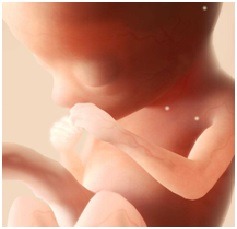
1st trimester Pregnancy week by week 1 to 12
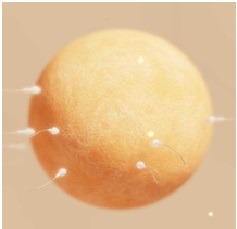
Pregnancy week by week 1 to 12
#Week 1
Baby length 0
Baby weight 0
Because your egg can live for only 24 hours after ovulation, timing is of utmost importance to ensure that Conception occurs. Even though there are many eggs inside a woman’s ovaries, usually only one is released at the time of Ovulation.
Ovulation is the exciting time in your body .you may notice slight cramping in the abdomen around ovulation.
# Week 2
Baby length 0
Baby weight 0
You’re DNA and that of the biological father form a new cell called a 'zygote'. Beginning a process of rapid growth, the zygote divides and keeps on dividing to form a solid mass of cells called the morula. The morula doubles in size about every 12 hours. You don’t know it yet, but you’re pregnant. All that hard work has finally paid off.
.The hormone that shows up in your blood and urine and serves as a sign of pregnancy. It’s that wonderful substance that turns the line positive on your home pregnancy test. everything that goes into your body will reach your developing baby.
# week 3
Baby length 0
Baby weight 0
The cells are continuing to divide to form the embryo rapidly. Your pregnancy can be measured in 'Fetal age' or 'Gestational age.' Because pregnancy symptoms are very similar to pre-menstrual symptoms, you may think you're about to get your period. The breast tenderness and mild cramps that some women usually experience may still occur.
It's possible that you even spot a little bit during implantation, but this is normal. Your heart may be beating up to 15 times more per minute, which is also normal as your heart is trying to get used to pumping the extra blood.
For those carrying twins, the level of hCG may be higher than with one baby, sometimes an early indicator of a twin pregnancy. Get proper rest, keep taking your prenatal vitamins and be as healthy as you can. Once you've had a positive pregnancy test, either at home or the doctor's office, you're probably ready to shout to the world 'I'm pregnant!
#week 4
Baby length 2mm
Baby weight 0
. The placenta has started to develop, and three distinct layers of cells form in the embryo. The first layer will form the digestive system, liver and lungs of your baby; the second will form the heart, muscles, kidneys, reproductive organs and bones of your baby; and, the third will form their nervous system, hair, skin and eyes. Two major processes occur during this week. Firstly, the neural tube, which is the precursor to your baby’s brain and spinal cord, forms from the ectoderm layer.
(adsbygoogle = window.adsbygoogle || ).push({});
Folic acid is vital in this process, and this is why it is often recommended as a supplement. It is the time that you begin to have morning sickness. Your uterus is growing and pressing on your bladder and sending you to the bathroom to pee more often. The tenderness in your breasts is increasing as the milk glands that will feed your baby are multiplying.
Cravings are probably the most joked about side effect of pregnancy. It’s normal for mom-to-be to experience sudden urges for specific, and sometimes unusual, foods.
#week 5
Baby length 6mm
Baby weight 0.2gm
Believe it or not, although it is too early to hear, the heart starts beating on or around day 21 after conception (day 35 of pregnancy). Your baby's spinal cord is beginning to form, with the neural tube starting to close. On a week 5 baby is now shaped like a tadpole, a bump at one end will develop into the head, and the tail will form the trunk.
Baby is now growing a thin layer of skin to cover everything up. Women who experience morning sickness will lose a bit of weight in the first trimester. However, some others may have gained a pound or two by this point in their pregnancy. If you have symptoms of heartburn or nausea, avoid greasy and fatty foods.
#week 6
Baby length 1.3mm
Baby weight 0.5gm
The brain is developing particularly fast, making your baby's head much larger in proportion to the rest of the body. As the brain and head continue to build, so do the eyes and ears, the inner ear takes shape, and the eyelids begin to develop. Your baby's kidneys are starting the development.
Your baby's eyes are visible and changing quickly; we can't see it yet, but the color of your baby's eyes is determined at the moment the sperm fertilized your egg.the digestive system is beginning to link up with the mouth. You may be noticing that your jeans are getting too tight by now. It is entirely normal as your body is preparing and making room for your baby or babies.
#week 7
Baby length 1.6cm
Baby weight 1gm
Your little one is starting to look like a baby. Your baby’s arms and legs continue to develop. Although the lungs are developing, your baby won’t take the first breath until after being born. The placenta, which is still forming alongside your baby, will provide all the oxygen your baby requires until then. You may feel like a teenager again as a few pimples may start popping up – but this is a normal reaction to increased hormones
#week 8
Baby length 2.3cm
Baby weight 2gm
The heart of baby, which was previously only two-chambered, has now developed into a tiny perfect replica of a fully grown adult heart with four chambers working to pump the blood around the body. The bones of your baby's arms and legs will start to firm up, and the trunk will straighten.
Take it easy on the vitamin A as too much can be harmful to your baby, so stay away from liver and fish liver oils. Try to avoid sugary snacks during the day as they will only give you a temporary energy boost, and you'll end up feeling even more tired. Your meat has to be cooked properly– that means there should be no pink meat inside.
Remember, whatever you put into your mouth is going to reach the baby via the umbilical cord.
# Week 9
Baby length 3.1cm
Baby weight 4gm
The kidneys, liver, brain, and lungs are all beginning to function, and the heart is almost fully developed. Your baby's head is now half the size of the body, and that little tail that made him or she resembles a tadpole is starting to disappear. Depending on the position of the baby, it may not be until week 14 before the heartbeat can be heard. Depending on the position of the baby, it may not be until week 14 before the heartbeat can be heard. Your little one will notice the onions and garlic in your diet. By the time you're 13 to 15 weeks pregnant, your baby's taste buds have fully developed, and he or she can start sampling different flavors from your diet.
# Week 10
Baby length 4.1cm
Baby weight 7gm
Your baby is now busy moving around inside your uterus. This week is the beginning of three weeks when your baby will double in length. Your baby looks more human now than ever before with a visible neck, straighter back, and thicker skin. The head is almost as big as the rest of your baby’s body. With the extra blood volume, you may notice that you feel warmer and even thirstier. Your hair becomes luscious, and nails become more energetic and are less likely to break.
# week 11
Baby length 5.4cm
Baby weight 14gm
The muscular system and nervous system are responding to each other, and your baby is now able to bend, stretch, kick, and even make faces. The sex of your baby is becoming more pronounced, and the kidneys are now producing urine from the amniotic fluid that he or she ingests. You may notice some bloating, which is a result of hormonal changes causing your digestive system to slow down. This is the time when morning sickness starts to decrease, although, for some women, it lasts a few weeks longer. Shark, swordfish, and marlin should be avoided due to their high mercury content. Tuna should only be consumed minimally, no more than once a week. This is because mercury can damage your baby’s nervous system possibly through their pregnancy.
# Week 12
Baby length 7.4cm
Baby weight 23gm
Your baby is growing. Baby now can open and close. It's just a matter of time before the thumb and mouth meet. All the organs of your baby's digestive system are developing into their final shapes including the stomach, liver, pancreas and intestines. You may also begin to notice stretch marks on your breasts, abdomen and lower back. The degree to which stretch marks develop will depend on your skin's elasticity.
2nd trimester
Pregnancy week by week 13 to24
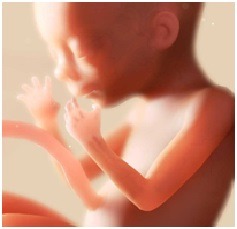
Read the full article
#MorningSicknessinpregnancy#pregnancy#pregnancyandsleep#pregnancyathome#pregnancybelt#pregnancybloodtest#pregnancycalculter#pregnancycalendar#pregnancychances#pregnancycheck#pregnancydischarge#pregnancykidua#pregnancylegpain#pregnancystages#pregnancystrips#pregnancysymptoms#pregnancytest#pregnancytips#pregnancytrimesters#pregnancyvideos#pregnancyweekbyweek
0 notes